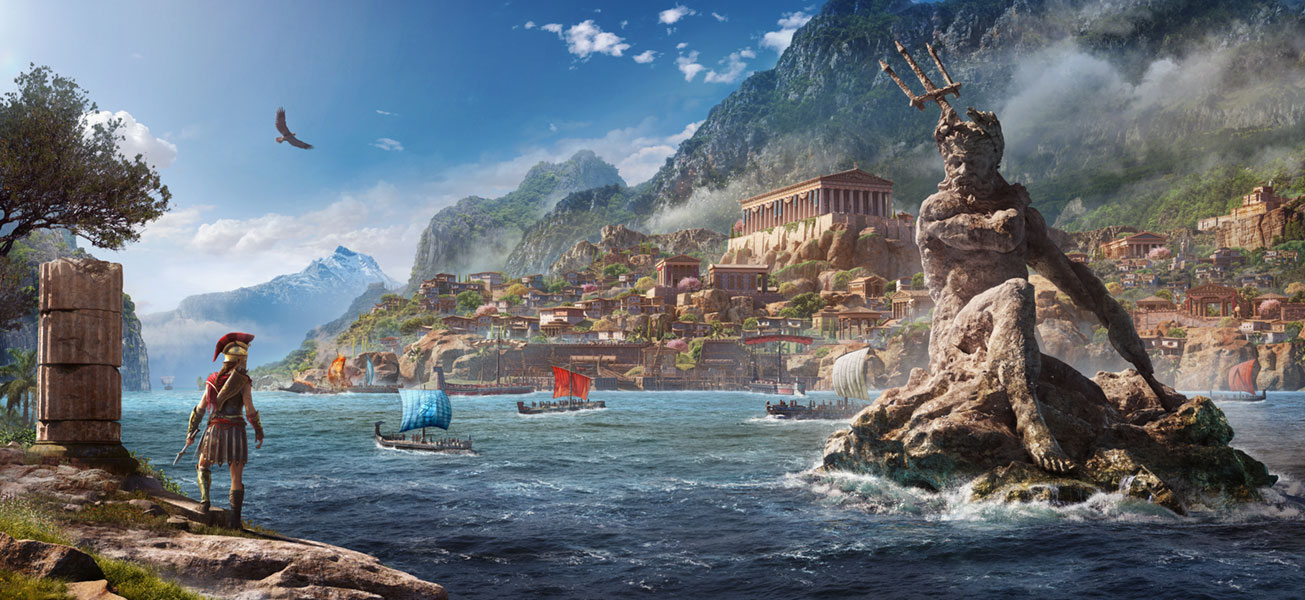Translating game narrative to the big screen
I’ll let you into a secret. I enjoy watching the first Tomb Raider film. Yes, the one with Angelina Jolie and Daniel Craig which involves the Illuminati, an archaic talisman and is really into planet rotations. That said, I dare anyone to watch that film and claim that they didn’t at least have a good time.
But the fact remains that almost unanimously, every video game adaption into a film has been mediocre at best, and dismal at worst. Most recent examples have included Assassins Creed, which features actual Shakespearean actors, and Tomb Raider, which attempted to leech off the video game’s success by essentially copying and pasting the story onto film reel. So why has there been such a poor legacy of video game films? Well, it has something to do with the nature of video games themselves, as well as the occasional corporate misfire.
What is the most important aspect of a video game to get right? There are certainly many important elements: graphics, characters and story, to name but a few, but the most important element has to be the game mechanics themselves. There’s a reason I never finished Vampyr or Shenmue. Despite the interesting and compelling elements to their stories and characters, the infuriating fighting mechanics of the former and the trial and error monotony of the latter meant that I would eventually discover the endings on YouTube. Gaming mechanics are a unique element to the medium of video games. In all other mediums, such as books, plays, films, and TV, it is the story itself which is of paramount importance.
So, quite simply, in most video games, certainly triple A’s, story is less of a priority. Assassins Creed may be one of the biggest franchises in gaming, but the story is a convoluted mess and the characters usually miss than hit with their audience. But it’s exciting to play, so we carry on. So, when corporate overlords gathered and discussed the best option for turning a video game into a film, it’s understandable that they opted for one of the most profitable and well-known franchises. They did, however, fail to register the fact that devoid of its interesting game mechanics, Assassins Creed’s flaws shine bright for all to see – which is why it now stands at a 17% Rotten Tomatoes score.
But, this is the approach that executives always take. Rather than choosing games that they know will translate well into the medium of film, they pick out the most profitable option and hope that this alone will bring them success. This may have made them money in the past, but it seems that audiences are becoming increasingly wary of video game films. The recent Tomb Raider film grossed only $274.7 million worldwide, not quite breaking even at the projected $275 million mark. It turns out creating a carbon copy of a game renders it pointless for fans of a series to see the same thing twice. Who’d have thought?
Devoid of its interesting game mechanics, Assassins Creed’s flaws shine bright for all to see
This is a very worrying trend, as it suggests that executives are likely to turn away from video game film entirely, rather than re-assessing their approach to the… genre (if you can call it that). It may be for this reason that the Uncharted film keeps appearing and submerging with different directors and casts. It’s a risky venture, and there’s yet to be any signs of it actually paying off. But Naughty Dog’s writing and storytelling hold a great deal of potential that could translate very well to film.
The other issue with video game films is that video games have a great advantage in terms of lore building, in that they are far longer and more expansive than any other medium can be. Perhaps the Star Wars extended universe is one exception, but on the whole, films cannot compete with the logs, databases, bios, collectables, side-missions and other story-telling techniques that video games employ. This means that in more ambitious video game film projects there is either an attempt to dumb the lore down, making the original property lose most of its appeal, or the producers try to cram as much background into two hours as they can and create a confusing mess of a movie.
Films cannot compete with the logs, databases, bios, collectables, side-missions and other story-telling techniques that video games enjoy
Simply put, video games are a unique and complex medium. This makes them a pleasure to enjoy but also very difficult to translate into other mediums. The easy decision is to go for the biggest franchises out there, but they aren’t necessarily the best-written video games and so fall flat when story and character are relied on so heavily. Moreover, the overwhelming nature of video games also makes it extremely difficult to fit them into a film’s running time. The upcoming Netflix Witcher series could be a good solution to this. TV shows offer a great deal more running time, but there’s still also the risk that it might be seen simply as a quick, easy buck to get in some much-needed revenue. You can throw Henry Cavill at the screen all you want, but past examples have shown that you need more than star power to make a good video game film.
Personally, I am optimistic that one day a good adaptation will come. There’s certainly a precedent for it. Every time a promising rumour comes along, gamers cling to it like glue. But, in order for the property to work well, producers should look to those which can stand up on their story alone, not just those that sell well. So, until that day comes, I’ll be re-watching the 2001 Tomb Raider film, dreaming of something more intellectually stimulating.

Comments